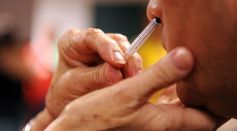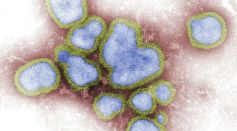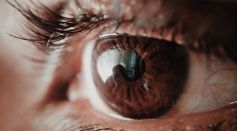MEDICINE & HEALTH

Elephant Shark to Determine Link Between Commonly Used Drug and Abortions

Nasal Spray COVID-19 Prevention and Treatment Now in Development

Overdose Death Rates Increase From 2000 to 2018 Possibly Due to Sleeping Pills, Anti-Epilepsy Drug

'Russian Flu' That Emerged in 1889, Possibly a Coronavirus; Pandemic Killed More Older Adults Than Children

Physically Attractive People Have Healthier Immune System, Study Says

New Technique Could Make It Possible to Have Universal Organs for People of Any Blood Type

Woman From the U.S. Cured of HIV Using a Revolutionary Treatment for Leukemia

COVID-19 Pandemic Might Not End For Immunocompromised People; Here’s Why

Tay-Sachs Disease Treatment: Two Children Became First-Ever Successful Gene Therapy, After 14 Years of Development

Future Crops Sowing Proprietary Basil Seeds of Growth

Predecessor of Pontiac Fever Causing Legionella Bacteria Discovered to Infect Animal Cells 2 Billion Years Ago

Genes Potentially Responsible for Coronary Heart Disease Triggers Cardiovascular Occurrences

Thinning of the Retina Could be an Early Sign of Cognitive Decline, Study Suggests

What is Hair Sunscreen For? Experts Discuss Why People Should Put SPF on Their Scalp
Most Popular

Dream Science Meets Neuroscience: HowDream Engineering and Targeted Sleep Stimuli Unlock Creative Cognition

Why the Human Brain Fears the Unknown: Science Behind Anxiety and Uncertainty

The Gut Microbiome's Hidden Allies: New Bacteria Linked to Better Health and Well-Being

Coral Bleaching Crisis: Ocean Heatwaves Devastate Reefs and Marine Biodiversity





